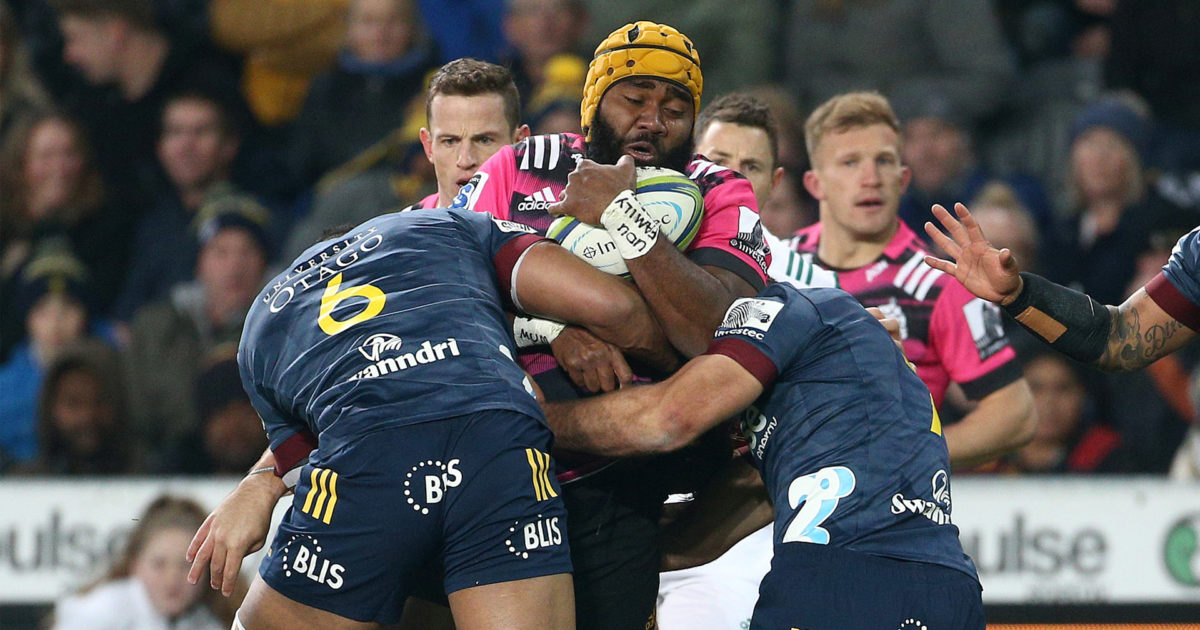Understanding the outrageous penalty count in the Aotearoa opener

The crowd poured in, the match happened and the exciting result was a wonderful bonus.
There was a strange air of past normality about it at this time of unreality to the extent that writing about the law application of the match seems such a niggardly thing to do in view of the glorious gift of rugby that five million New Zealanders have given the world.
Five million people and no new COVID-19 cases for 22 days – and so rugby with spectators in Dunedin. Five tries and a lead that changed twice in the last three minutes. Those are the stats that count.
Then there are other stats – 30 penalties and two yellow cards and six scrums in the match – and lots and lots of passes.
The many penalties and the few scrums are worth noting.
https://www.instagram.com/p/CBYPLVSAoKv/
The two yellow cards, both against Highlanders, were for dangerous tackles a tip tackle by fullback Vilimoni Koroi and an air tackle by wing Jona Nareki, both of which could be regarded as standard in the rugby of recent times.
The mauls and the few scrums were admirably correct and produced no penalties. But tackle infringements and offside produced 28 penalties. The penalties, though numerous, did not seem to have an adverse effect on the players’ efforts to play constructive rugby.
The referees had been told beforehand to police the tackle and it surrounds with greater diligence than has been recent practice – not going outside the laws but simply by applying the laws.
The result for the game was that tackles were quick because they were, until just before the end, contested by players on their feet.
In fact, there was little post-tackle contest. The players taking part were few in number and on their feet. The ball was quickly back in circulation, and both sides did a great deal of handling.
Because tackles were of short duration and barely contested, there were no unplayables in the match, which led to fewer scrums.
There were just two scrums in the first half, both for knock-ons – the first after 25 minutes, the second after 33 minutes.
There were four in the second half – the first two for knock-ons, the second two when the Chiefs opted for scrums after a penalty in their search for winning tries. The scrums were admirable and not one was reset.
At the tackles, the players’ determination to stay on their feet was admirable, though one wondered whether this way of playing was not robbing the game of its basic principle of a contest for and with possession which diminished it as a game for all shapes and sizes. After all, a tackler is a victory for defence. If it becomes a done deal that the tackled player’s team will get the ball it denies the tackler’s team value for its victory.
In this match, the referee was quick to penalise “holding on” to deny an early opponent the chance to get possession of the ball, as Josh Dickson found out inside the first three minutes.
Rugby is back, but it's gotten off to a rucky start… https://t.co/oKPN9bxBhW
— RugbyPass (@RugbyPass) June 13, 2020
He was strict on side entry, by either team. When Aaron Smith of the Highlanders, Josh Dickson of the Highlanders went straight to his aid and was penalised for side entry
He was also quick to penalise arriving players at a tackle who went off their feet in an effort to protect and/or clean out – as Chiefs No.8, Pita Gus Sowakula, found out twice.
The referee was also quick to penalise the tackled player who did not immediately make the ball available. If he kept hold of the ball and moved again with it, rolling over or lifting it up, he was penalised.
These last four actions by the referee are applications of the law, not new interpretations, and it again emphases the need for match officials to give the laws a fair chance to prove their worth!
The laws:
Law 14 PLAYER RESPONSIBILITIES
5. Tacklers must:
a. Immediately release the ball and the ball-carrier after both players go to ground.
b. Immediately move away from the tackled player and from the ball or get up.
c. Be on their feet before attempting to play the ball.
d. Allow the tackled player to release or play the ball.
e. Allow the tackled player to move away from the ball.
Sanction: Penalty.
6. Tacklers may play the ball from the direction of their own goal line provided they have complied with the above responsibilities and a ruck has not formed.
7. Tackled players must immediately:
a. make the ball available so that play can continue by releasing, passing or pushing the ball in any direction except forward. They may place the ball in any direction.
b. Move away from the ball or get up.
c. Ensure that they do not lie on, over or near the ball to prevent opposition players from gaining possession of it.
Sanction: Penalty.
8. Other players must:
a. Remain on their feet and release the ball and the ball-carrier immediately.
b. Remain on their feet when they play the ball.
c. Arrive at the tackle from the direction of their own goal line before playing the ball.
d. Not play the ball or attempt to tackle an opponent while on the ground near the tackle.
Sanction: Penalty.
– Paul Dobson / Rugby365































































































